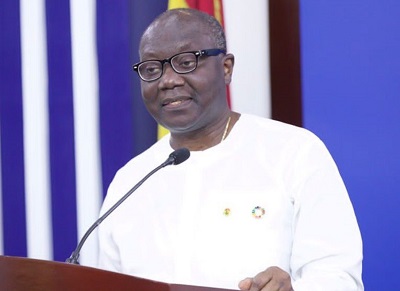Two economists have expressed optimism that the International Monetary Fund’s (IMF’s) approval of about $3 billion for the country will help restore economic stability and recovery.
However, they maintained that the success or otherwise of the programme would depend on strict adherence to the targets of the programme.
Prof. Eric Osei-Assibey of the University of Ghana and the Dean of the University of Cape Coast School of Business, Prof. John Gatsi, both expressed the belief that the arrangement would help reduce inflation, ensure economic stability and push the country’s debt to sustainable levels.
However, they pointed out that managers of the economy and other stakeholders must stick to the programme for the country to reap its full benefits.
Discipline
In an interview with the Daily Graphic, Prof. Gatsi said the government must have learnt lessons from its management of the economy and would, therefore, exhibit discipline and adhere to the conditions of the programme to achieve the stability envisaged.
Although the implementation of the programme would come with some difficulties, including additional domestic revenue mobilisation measures in the form of new taxes, the professor of economics and finance said it was more prudent to suffer the consequences that came with the credit facility to ultimately restore the economy on the path of growth.
“It is better for us to engage with the IMF for all these painful exercises to take place but as to whether our government has learnt its lessons is something we need to question,” he said.
Prof. Gatsi explained that when a country borrowed from the IMF, the government agreed to adjust its economic policies to overcome the challenges that led it seeking financial assistance.
For instance, he said, the IMF had asked the Bank of Ghana not to lend money to the government for budget support, as a measure to reduce inflation because the high inflation that was recorded in recent times was as a result of the central bank accommodating expenditure on behalf of the government.
“The level of inflation that we have recorded is as a result of the government's inability to finance a budget and for which the central bank had to take over the financing of the budget and that was the reason why we have recorded the inflation that we have seen,” he said.
Prof. Gatsi said his only reservation on the programme was the speed with which it was granted and the level of diplomacy that was employed to get the deal through.
He expressed worry that the country may have to give something in return for the favour done the country by the diplomatic community.
“I believe you are aware that the Vice-President of the United States, Kamala Harris, said that she was going to deploy somebody to the Finance Ministry and that was done. She also talked about speeding up the process with the IMF and they have done that,” he said.
“So the question is when she was leaving, her main statement that she made to the Ghanaian people was about diversity and human rights issues, so are we going to be liberal towards LGBTQ? Is that the price Ghana will be paying?” Prof. Gatsi submitted rhetorically.
Opportunity
For Prof. Osei-Assibey, the programme was an opportunity for the country to seize and turn things around to reset on a path for a more solid and diversified sustainable economy.
With the programme designed to ensure macroeconomic stability, fiscal stability and sustainability, the economist, who also serves on the Board of the Bank of Ghana and the Consolidated Bank, said he was optimistic that the government would toe the line of how previous IMF programmes had been implemented successfully to make this one too a success.
“The normal course of action or the best policy response is to embark on a large front-loaded fiscal consolidation policy that essentially means that you are aggressive on revenue mobilisation, and then ensuring expenditure control,” he said.
Per the programme, Prof. Osei-Assibey said the implementation was going to be based on very ambitious structural reforms in the area of hard policy measures.
“We've seen some rollout of new taxes and new policies and revenue administration, ensuring that there's efficiency in tax collection and all of that and then strengthening the public financial management system,” he said.
He said the government must take advantage of the programme to position the private sector as the anchor for economic growth by creating the enabling environment for businesses to thrive.

